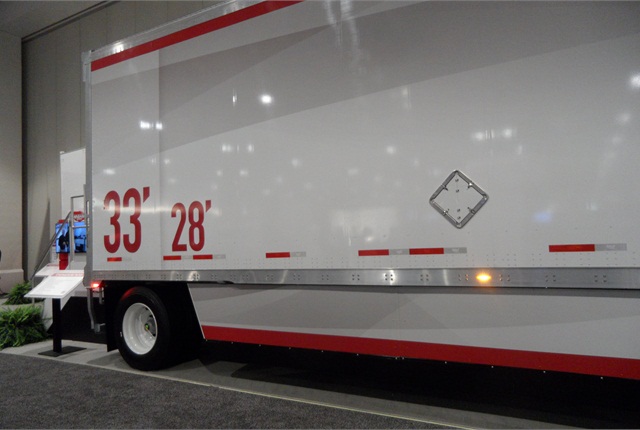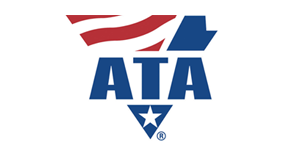
ATA “disappointed” by US Senate vote on twin 33 trucks

The American Truck Associations (ATA) President and CEO Bill Graves has said it was “unfortunate” that the US Senate has voted against a proposal which would have mandated all states to allow trucks pulling double 33-foot trailers on the national highway system. The proposal had been put forward in the Department of Transportation’s fiscal year 2016 appropriations bill.
Local sources report that the proposal would be particularly relevant to players in the US parcels industry, because double trailers are popular with by package-delivery and LTL carriers. This is because their shipments often fill out a trailer’s cubic dimensions before their loads hit the federally mandated 80,000-pound gross vehicle weight limit – and they therefore benefit from the extra cubic capacity.
Opponents of the “twin 33” provision, however, maintain that the bigger trucks could pose safety problems.
The motion opposing the proposal was passed by a vote of 56-31 in the US Senate on Tuesday last week (10 November). Effectively, the motion aims to keep twin-trailer lengths capped at 28 feet until the Department of Transportation can rule on their safety.
Dianne Feinstein, a Democrat Senator from California who authored the motion with Roger Wicker (R-Miss), welcomed the result: “Today’s vote was a victory for public safety. The Senate said loud and clear that twin 33s are dangerous and we must study their safety before allowing longer trailer trucks on our roads. ”
Senator Wicker added: “Thirty-eight states say these longer trucks are not safe, and they tell us that they don’t want them on the highways and byways. I think we should respect their decision.”
In a statement posted by the ATA yesterday (18 November), however, Graves clearly indicated his disappointment with the vote – and also said that he felt that this was just a temporary set-back.
“This modest increase in tandem trailer length would reduce the number of truck trips needed to move an increasing amount of freight while making better use of a dwindling pool of drivers,” said Graves. “This common sense solution holds the potential to ease congestion, reduce emissions and improve the efficiency of the supply chain.
“There are so many upsides to the use of twin 33s that it is inevitable this change will come to pass. Decision makers cannot continue to embrace unsafe and unproductive strategies, and expect to have this nation’s freight continue to get delivered. Ultimately the economy will win this debate.”
It will probably come as no surprise to learn that the campaign to stop twin 33s has the Coalition Against Bigger Trucks in its corner, but it is also supported by the Truckload Carriers Association and several state trucking associations.













